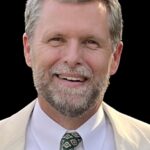


How learning NeuroAffective Relational Model™ (NARM™) Changed Our Treatment Approach to Working with Complex Trauma
How learning NeuroAffective Relational Model™ (NARM™) Changed Our Treatment Approach to Working with Complex Trauma
Information
Date & Time
-
-
Location
-
Northern Hemisphere A1/2
1500 Epcot Resorts Boulevard
Lake Buena Vista, FL 32830
Learning Objectives
Participants will be able to:
-
Identify 2 ways adaptive survival strategies are created as a result of complex trauma.
-
Identify at least 2 reasons why it is important to gain consent before beginning work with clients.
-
Identify 2 ways therapists collude with strategies that create barriers to client progress
-
Describe at least 2 ways in which well intentioned interventions can interfere with clients accessing agency in their own lives.
Description
Despite the increased awareness and education around trauma, mental health professionals frequently find themselves “stuck” when treating clients with Complex PTSD. Have you ever worked with someone who says they are motivated to change yet it feels as if they are working against changing? Have you had other clients that seemingly make progress then quickly revert back to their old ways? Neuro Affective Relational Model™ is an approach that provides insight into the underlying issues that have traditionally been referred to as resistance. NARM offers an alternative approach for the therapist to engage with curiosity and kindness which is referred to as heartfulness. After many years of experience working with trauma, NARM™ has radically changed our therapeutic approach. This relational model has provided a different way to explore with our clients how they relate to themselves and the defenses or adaptive strategies they used to survive. This in turn has resulted in significant healing and post-traumatic growth. This presentation will explore some key concepts in this approach for clinicians to consider when working with developmental trauma.
Target Audience
- Addiction Professional
- Counselor
- Marriage & Family Therapist
- Nurse
- Physician
- Psychologist
- Social Worker
Presenters

Dr. Angela Thompson holds a PhD in Clinical Counseling. She is a Licensed Professional Counselor/Mental Health Service Provider in the state of Tennessee. Dr. Thompson is also an Approved Clinical Supervisor (ACS) providing post masters licensure supervision and she is a Certified NARM Master Therapist. Dr. Thompson also trained in a variety of other trauma informed modalities that include Brainspotting, Experiential Therapy, Psychodrama and Internal Family Systems (IFS). She has over 30 years experience counseling, teaching, and speaking. Dr. Thompson specifically works with individuals, couples, and families that struggle with the impacts of developmental trauma. She sees her role as one that helps support clients in discovering what it is that they are wanting for themselves and exploring the barriers that are blocking them from achieving those desires. Dr. Thompson currently maintains a private practice in Nashville, Tennessee.

James Horne LPC-MHSP is a licensed professional counselor. He has a masters degree in professional counseling and has been in practice for over 20 years. As a counselor James describes his passion as helping others to be their true authentic selves by assisting them in identifying the barriers that keep them from realizing who they are created to be. He has a heart for working specifically with developmental trauma. James has spent most of his career working in trauma-focused treatment centers serving in the roles of therapist, trauma specialist and clinical director. His first career was as an Army officer and after 6 years in the service he choose to resign his commission and began his own healing journey which included inpatient and residential treatment for addiction and developmental trauma. This experience inspired him to pursue a degree in counseling. , James is trained in multiple trauma informed treatment modalities such as EMDR (Eye Movement Desensitization Reprocessing), Brainspottting, NARM (Neuro Affective Relational Model) and CRM (Comprehensive Resource Model). He was also trained in the Murray Method, an extensive trauma-informed program developed by Marilyn Murray.
Financially Sponsored By
- GXC Events - The Global Exchange Conference